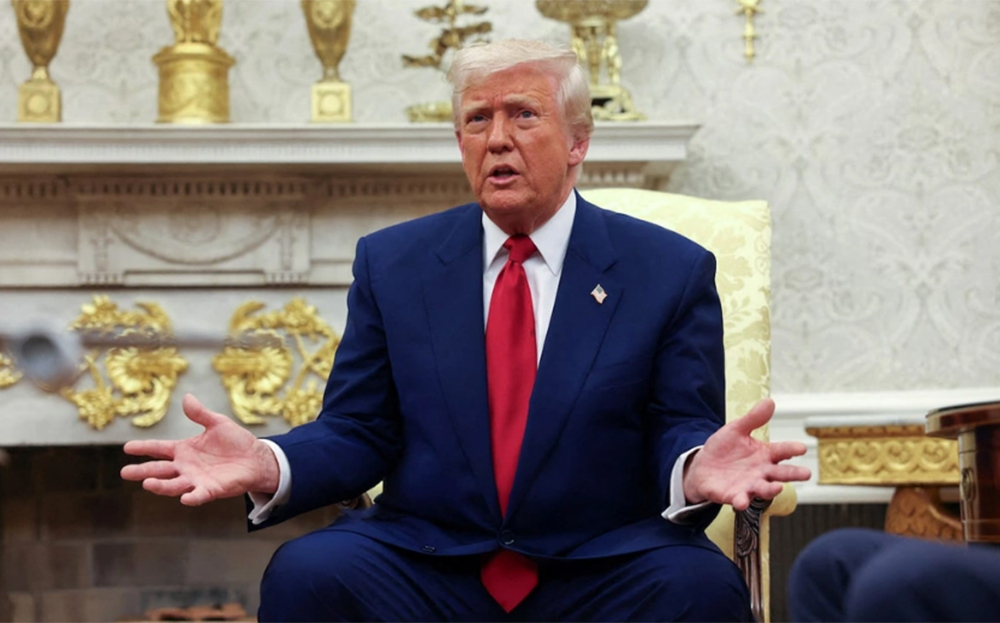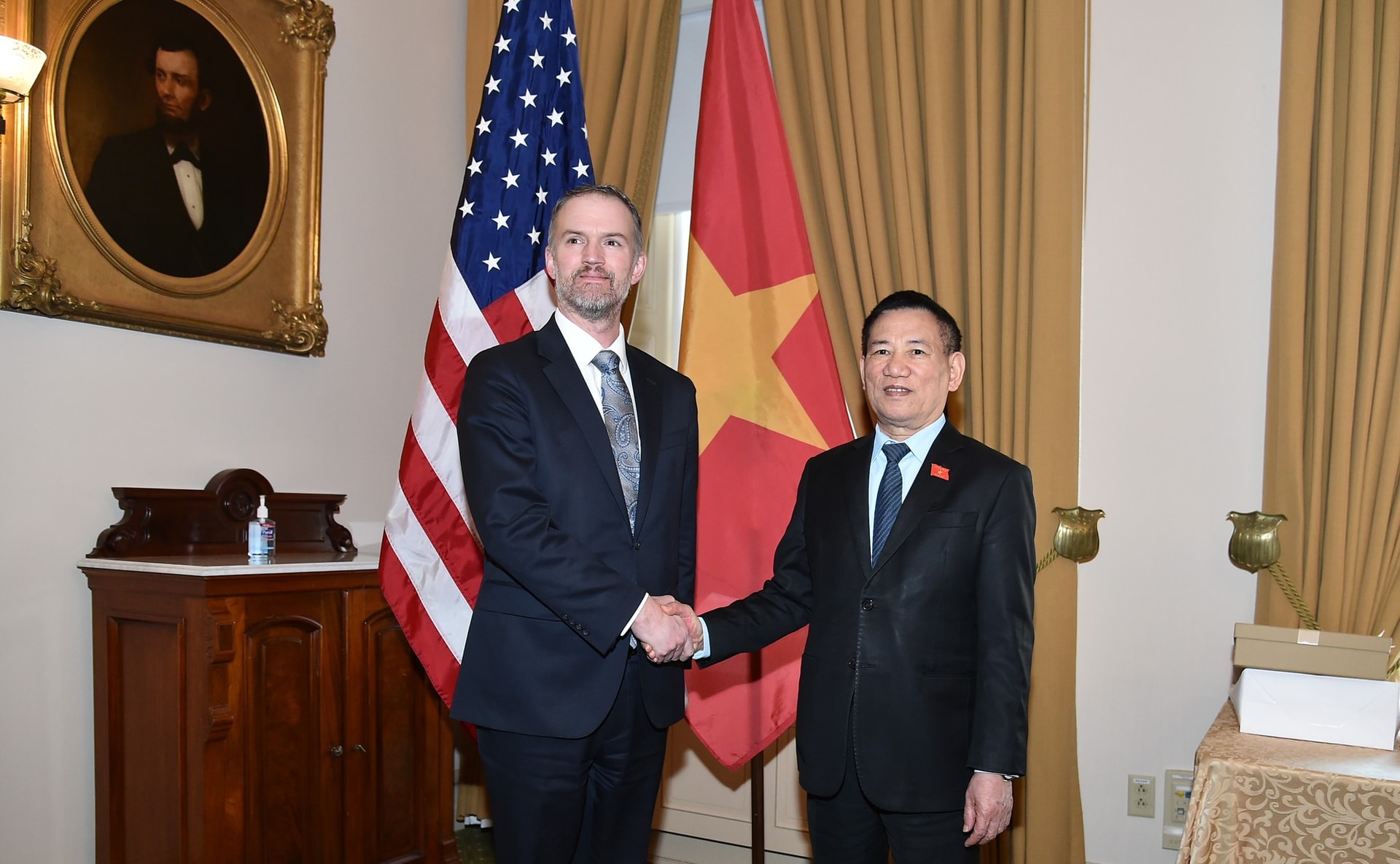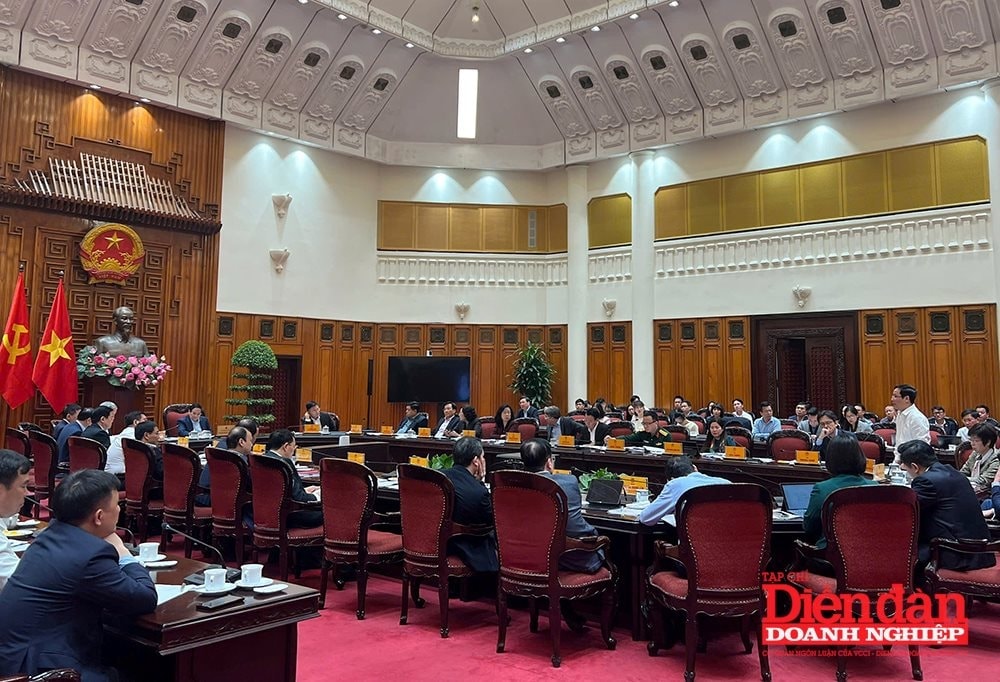After proposals of Vietnam and many other countries, Trump drops tariffs to 10% for 90 days
The US President Donald Trump dropped new tariff rates on imports from most U.S. trade partners to 10% for 90 days to allow trade negotiations with those countries.

President Donald Trump on Wednesday dropped new tariff rates on imports from most U.S. trade partners to 10% for 90 days to allow trade negotiations with those countries.
Trump announced the pause hours after goods from nearly 90 nations became subject to stiffer, so-called reciprocal tariffs imposed by the United States.
The president also said in a social media post that he was raising the tariffs imposed on imports from China to 125% “effective immediately” due to the “lack of respect that China has shown to the World’s Markets.”
China, which is the U.S.’s third-largest trading partner, earlier Wednesday said it would increase its tariff rate for imports from the U.S. to 84%.
Trump said “more than 75 Countries” contacted U.S. officials to negotiate after he unveiled his new tariffs last week.
Recently, Vietnam has carried out many actions. General Secretary To Lam recently held a "very productive" call with President Donald Trump, during which Vietnam expressed willingness to reduce tariffs on U.S. imports to 0% if an agreement can be reached. The Vietnamese government is taking tangible steps to improve this balance. Just last week, it reduced tariffs on 13 product categories, directly benefiting U.S. exporters. Senior Vietnamese leaders have pledged to further ease imports from the U.S.

Deputy Prime Minister Ho Duc Phuoc, Special Envoy of General Secretary To Lam, met with U.S. Trade Representative Jamieson Greer on April 9 as part of his ongoing visit to the U.S. As a result, the U.S. agreed that both sides should initiate negotiations on a bilateral reciprocal trade deal, which would include tariff agreements, and asked technical levels from the two countries to begin discussions immediately.
In recent days, VCCI has proactively sent letters to the U.S. Department of Commerce, the U.S. Chamber of Commerce, the U.S.-ASEAN Business Council, and regional chambers in Los Angeles and San Francisco, urging support for a delay in the tariff implementation. Many of these organizations have expressed agreement with VCCI’s position.
In a joint letter to the U.S. Secretary of Commerce, VCCI and the American Chamber of Commerce in Hanoi (AmCham) emphasized: “Although the U.S. trade deficit with Vietnam has widened in recent years, this trend is largely driven by favorable investment conditions in Vietnam and broader shifts in global supply chains aimed at increasing resilience.” They asserted that the Vietnamese and U.S. economies are “complementary, rather than directly competitive.”
VCCI believes that with goodwill and collaborative effort, negotiations can yield a constructive outcome and strengthen the Vietnam–U.S. economic partnership. Alongside AmCham and the U.S.-ASEAN Business Council, VCCI is urging the U.S. government to engage in dialogue and temporarily suspend the new tariff measures for two to three months to allow space for negotiations.

“Lower tariffs on imports into Vietnam and on goods consumed by American consumers will bring tangible benefits to U.S. companies, the economy, and consumers,” VCCI and AmCham noted. They added that reducing tariffs supports not only exporters to Vietnam but also makes goods more affordable for U.S. households.
Both organizations expressed confidence in Vietnam’s commitment to addressing the bilateral trade imbalance and easing market access for U.S. firms. They also reaffirmed their cooperation with authorities to resolve trade-related challenges, including digital commerce regulations, pharmaceutical imports, intellectual property rights, customs and tax procedures, public procurement, data governance, and more.
“A swift and fair agreement will bring stability for businesses and contribute to a more balanced and mutually beneficial trade relationship,” VCCI stated.








